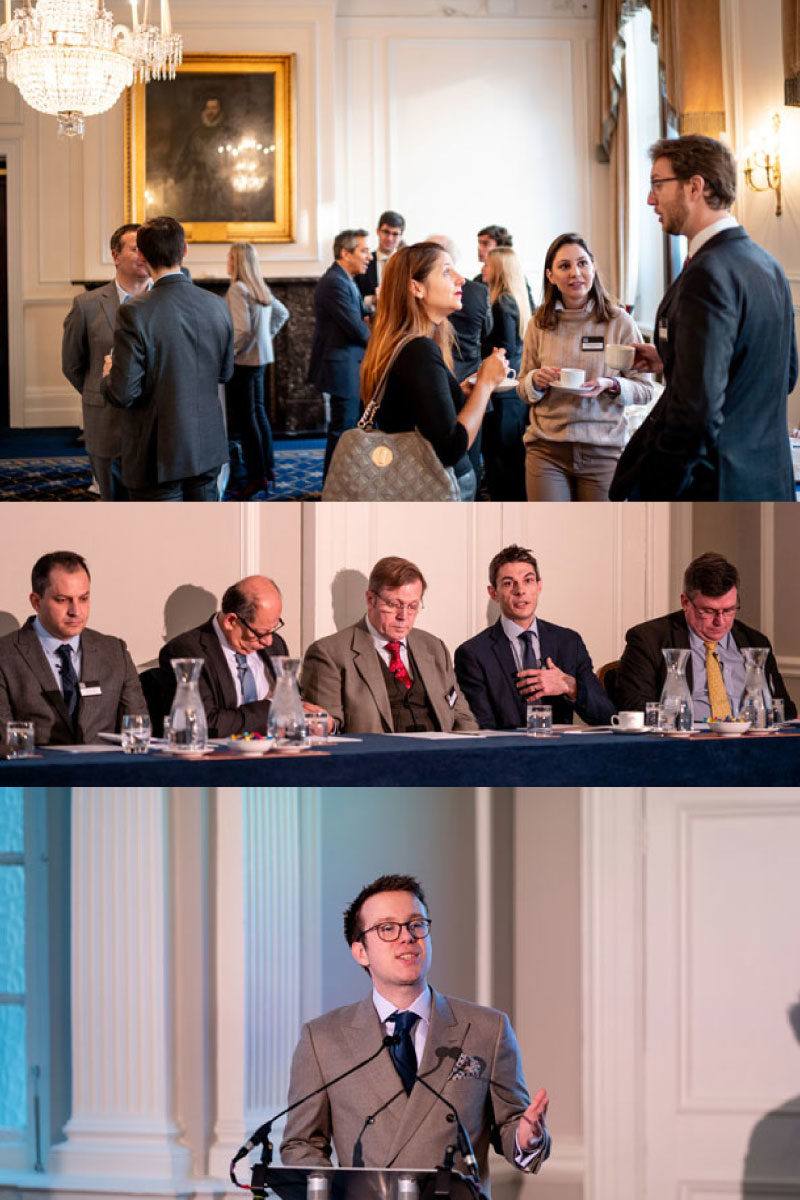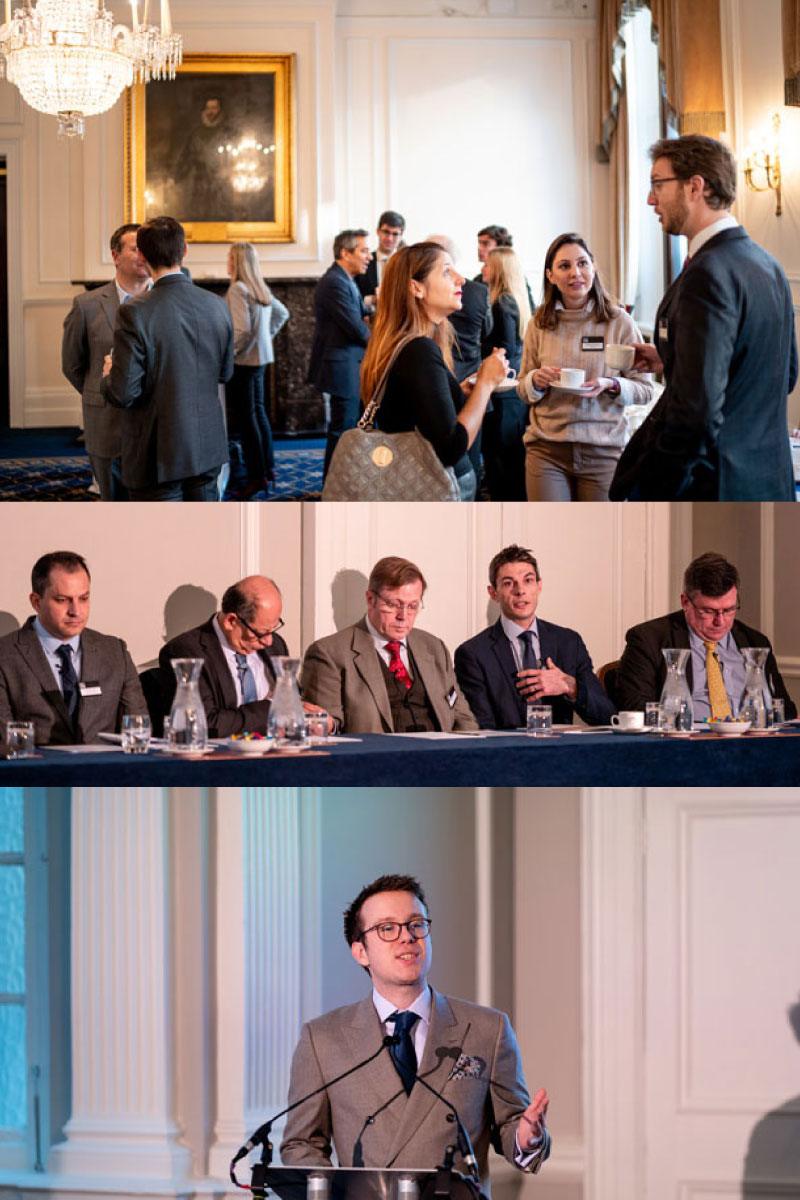On 14 February, The Legal 500 held its Private Equity in Latin America Summit at the prestigious Institute of Directors in London. Moderated by deputy editor and veteran investment funds researcher Will Tolcher, and sponsored by Brazilian firm Demarest, the event brought together an expert panel with a diverse range of knowledge from across the private equity space.
After the event, Will caught up with panel members John Adams (investment funds partnerat Shearman & Sterling), Andres Abadia (senior international economist at Pantheon Macroeconomics), and Carlos Caicedo (senior principal analyst, country risk at IHS Markit), for their thoughts on the Latin America market.
Will Tolcher: What will the election of fresh governments in Mexico and Brazil, each with very different ideas, mean for investment in Latin America?
Carlos Caicedo: In Brazil, Bolsonaro is pushing forward with an ambitious economic liberalisation agenda, which will include privatisation and fiscal reform. This has been reflected in regained market confidence, however, without pension reform this would disappear rapidly.
Mexico, on the other hand, is moving towards a left-wing nationalist agenda under Andrés Manuel López Obrador (AMLO), and the suspension of auctions for oil and gas projects and the cancellation of the Mexico City Airport have scared the markets. AMLO has sought to reassure the private sector, however, he appears quite unpredictable and this will impact negatively on Mexico’s business environment.
WT: Mauricio Macri is running for a second term, against a backdrop of very high inflation and a low currency, which has historically been a challenge in Argentinian elections. What might Argentina’s election have in store?
CC: Argentina will go on a real rollercoaster ride before its election, mostly because the re-election of President Macri is in jeopardy. The other contender is former president Cristina Fernández de Kirchner (CFK); despite the ongoing recession, Macri would be expected to beat her because of her history of alleged corruption.
However, if the ‘moderate Peronists’ get together and choose a credible candidate, they are likely to win: a manageable setback if the Peronists try to keep the austerity programme on track. A CFK victory would seriously undermine the business environment.
WT: With growing international trade tensions between the US and China, how do you see Latin America’s role: what are the opportunities and threats?
CC: A full trade war between the US and China would be highly counterproductive for Latin America. A global recession would severely cut demand for Latin American commodities and diminish foreign investment into the region.
A US recession would be highly negative for Mexico, Central America, and Colombia, but less so for the Southern Cone, which has more
diversified exports.
That said, Brazil and Argentina may win briefly from a US-China trade war; notably Brazilian exports to China in recent months have increased sharply as its exporters replace US grain.
WT: What do you see as the key challenges for fund formation lawyers working with Latin American funds?
John Adams: Structuring can be complicated due to the changing tax regimes. For example, in Brazil if investments are to be made through a local law FIP, then there are hoops to jump through when establishing feeders outside Brazil for non-Brazilian investors. There can be penalties for investing through jurisdictions such as the Cayman Islands, which can lead a fund manager to consider alternatives like Ontario, England, or Luxembourg.
WT: Do you see a growing role for family office investments in the region – are they a growing source of capital in the region?
JA: A growing role, yes. Large family offices often compete with funds for deals. Other family offices have been moving into management of third-party capital – in effect, moving into blind-pool fund management.
WT: Middle Eastern and Chinese investment are obviously key sources of capital for private equity investment. Are there any particular obstacles to them investing in Latin America?
JA: No. For some, there is unfamiliarity with the rules in particular countries which can be a real learning curve. There may be sensitivities over political stability in particular Latin American countries.
Large Middle Eastern and Chinese investors are very sophisticated and often are interested in co-investments, or even direct deals where they are competing directly with fund managers.
WT: Latin America has two key trade blocs – Mercosur and the Pacific Alliance. How do you see their role changing, both within each and for any potential for alignment between the two?
Andres Abadia: Their role is gradually changing, with new business-friendly governments betting on further integration. The ascent of business-friendly leaders, including Macri, Bolsonaro, Piñera, and Duque – who favour free trade – opens space for real integration ahead. The meetings among the leaders in recent months point to a revitalisation of these blocs. The likelihood of further alignment between them and other global players has increased significantly over the last year.
WT: How has the Trump administration’s attitude to the US’s neighbours affected investment? Where will alternative investment come from?
AA: Investment from the US to LatAm has slowed in recent years due to Trump’s policy towards the region but also due to intrinsic factors, including domestic political uncertainty. If investment continues to dry up from the US, LatAm is likely to see a marginal increase from the EU – we expect, no miracles, though.
Total trade between China and LatAm has gone from $10bn in 2000 to nearly $300bn in 2017 and China’s lending now surpasses the Inter-American Development Bank and the World Bank combined. Latin American governments might be wary of being too close to China but in the end, money talks.
WT: Much conversation on Latin America centres on its more populous nations. Are there any that are being left out the conversation that present opportunities?
AA: We see potential opportunities in Peru and Chile, which have solid fundamentals, including low interest rates, low inflation, and political risk under control. Investment is improving and private consumption remains solid.
Moreover, we expect growth-enhancing reforms from the Piñera and Vizcarra administration this year and next. The main risk is that these economies rely considerably on mining, so they remain vulnerable to a global slowdown.

